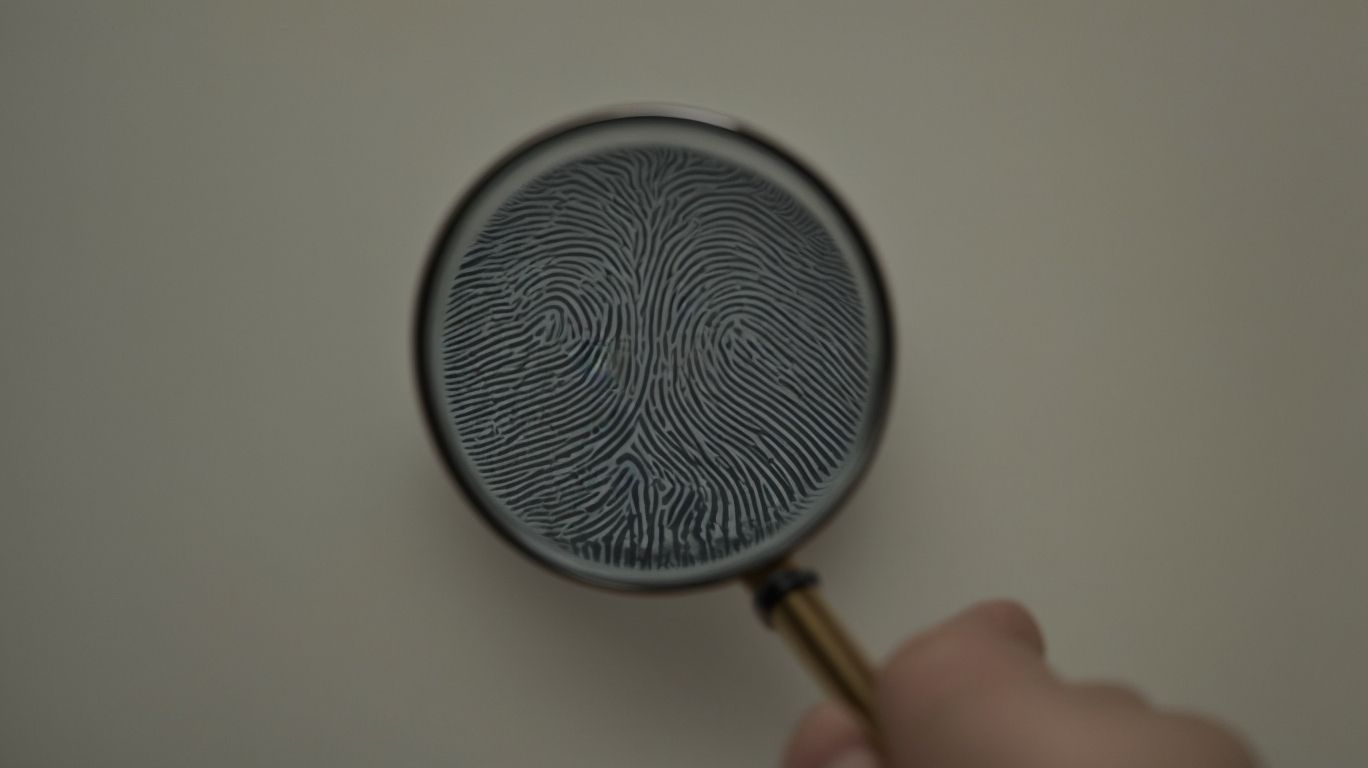Forensic psychology is a fascinating field that combines psychology and law to provide valuable insights into criminal behavior and the legal system. In this article, we will explore the key differences between forensic psychology and clinical psychology, as well as the various subfields within forensic psychology, such as criminal, legal, correctional, and investigative psychology.
We will also discuss the important applications of forensic psychology, including criminal investigations, courtroom testimony, and mental health evaluations. We will touch on the ethical considerations, education and training requirements, and career opportunities in this dynamic field. Join us as we delve into the world of forensic psychology and uncover its many facets.
Contents
- 1 What is Forensic Psychology?
- 2 What are the Subfields of Forensic Psychology?
- 3 What are the Applications of Forensic Psychology?
- 4 What are the Ethical Considerations in Forensic Psychology?
- 5 What are the Education and Training Requirements for Forensic Psychologists?
- 6 What are the Career Opportunities in Forensic Psychology?
- 7 Frequently Asked Questions
- 7.1 What is forensic psychology and how is it different from traditional psychology?
- 7.2 What are some of the applications of forensic psychology?
- 7.3 How do forensic psychologists contribute to the legal system?
- 7.4 What skills and training are required to become a forensic psychologist?
- 7.5 What are some ethical considerations in the field of forensic psychology?
- 7.6 How does forensic psychology impact society?
What is Forensic Psychology?
Forensic psychology involves the application of psychological principles within the legal system to understand criminal behavior and provide expert testimony in legal cases.
Forensic psychology plays a crucial role in the legal system by aiding in criminal investigations, evaluating suspects, and providing insights into the minds of individuals involved in legal cases. Forensic psychologists not only analyze behaviors but also offer recommendations for interventions and treatments to prevent future criminal activities; they often work with law enforcement agencies, courts, and correctional facilities. By applying their expertise in areas such as criminal profiling, risk assessment, and mental health evaluations, these professionals aid in understanding the motives behind criminal acts and help in courtroom proceedings.
What are the Key Differences Between Forensic Psychology and Clinical Psychology?
Forensic psychology and clinical psychology differ in their focus and application, with forensic psychology centering on psychological assessments in legal contexts.
Forensic psychology involves applying psychological principles and techniques to legal matters, such as criminal investigations, court cases, and rehabilitation programs. Professionals in this field must combine forensic skills with psychological expertise to evaluate individuals involved in legal processes, including suspects, witnesses, and victims.
On the other hand, clinical psychology focuses on assessing and treating mental health disorders and emotional issues in a therapeutic setting. While both disciplines utilize psychological assessments, forensic psychologists are more likely to work within the criminal justice system, providing evaluations for court cases and offering expert testimony.
What are the Subfields of Forensic Psychology?
Forensic psychology encompasses various subfields such as criminal psychology, legal psychology, correctional psychology, and investigative psychology, each focusing on different aspects of the intersection between psychology and the legal system.
Criminal psychology delves into understanding the behavior of criminals, often working closely with law enforcement to create criminal profiles to aid in investigations. Legal psychology, on the other hand, primarily deals with how psychological principles intersect with the criminal justice system and courtroom processes. Correctional psychology focuses on the assessment and treatment of individuals within the correctional system, addressing issues such as rehabilitation and recidivism. Investigative psychology applies psychological concepts to analyze behaviors associated with crimes and aid in solving cases.
Criminal Psychology
Criminal psychology delves into the study of criminal behavior, exploring the psychological factors that influence individuals to engage in unlawful activities.
This field examines not only the motives behind criminal actions but also the behaviors and thought processes of offenders. By analyzing patterns of behavior and cognition, criminal psychologists can provide valuable insights into the root causes of criminality. Understanding the interplay between genetics, environment, and psychology is crucial for unraveling the complexities of criminal behavior. Through in-depth assessments and evaluations, professionals in criminal psychology contribute significantly to the criminal justice system by aiding in criminal investigations, profiling offenders, and aiding in the rehabilitation of individuals within correctional facilities.
Legal Psychology
Legal psychology focuses on providing expert testimony and psychological insights within the legal system, often collaborating with law enforcement agencies to aid in investigations.
Expert testimony provided by legal psychologists plays a crucial role in shaping the outcome of legal cases, offering valuable insights into human behavior and mental processes. By utilizing their expertise in areas such as forensic psychology and criminology, these professionals assist in understanding the motives and behaviors of individuals involved in criminal activities.
This collaboration between legal psychologists and law enforcement not only enhances the investigative process but also ensures that justice is served effectively. Through their analyses and evaluations, legal psychologists help identify patterns of behavior, assess credibility, and provide recommendations for legal proceedings.
Correctional Psychology
Correctional psychology involves conducting mental health evaluations and providing interventions within correctional facilities, with a focus on rehabilitation and addressing psychological issues among offenders.
Correctional psychologists play a crucial role in evaluating the mental health needs of inmates, utilizing their expertise in clinical psychology to assess various psychological disorders and challenges. They work closely with forensic psychology organizations to develop treatment plans tailored to each individual’s specific needs, often using evidence-based therapeutic approaches to address issues such as substance abuse, anger management, and trauma. These professionals collaborate with correctional staff to provide ongoing support and facilitate group therapy sessions to promote behavior change and reduce recidivism rates.
Investigative Psychology
Investigative psychology aids in criminal investigations by aiding in jury selection, analyzing behavioral patterns, and often involves profiling offenders based on psychological assessments.
Regarding jury selection, investigative psychology plays a crucial role in helping legal teams understand the psychological dynamics of potential jurors. By leveraging knowledge of human behavior and decision-making processes, psychologists can provide insights into juror biases, attitudes, and personalities, aiding lawyers in making informed decisions during the selection process.
In the realm of criminal profiling, investigative psychology delves deep into the minds of offenders to create profiles that guide law enforcement in narrowing down suspects and understanding their motives. By analyzing behavioral data, including crime scene characteristics and offender characteristics, psychologists can offer valuable insights to investigators, contributing to the successful resolution of cases.
The application of forensic skills in investigative psychology involves utilizing scientific techniques to analyze behavioral evidence left by criminals. By examining patterns in behavior, language, and interactions, psychologists can assist in connecting the dots and deciphering the underlying motivations behind criminal acts, ultimately aiding in the pursuit of justice.
What are the Applications of Forensic Psychology?
Forensic psychology finds applications in criminal investigations, providing courtroom testimony, and contributing to the treatment and rehabilitation of offenders within the criminal justice system.
One crucial aspect of forensic psychology is its role in jury selection. Psychologists utilize their understanding of human behavior and cognition to assist legal teams in selecting impartial jurors who can objectively evaluate evidence. By assessing potential jurors’ attitudes, beliefs, and biases, forensic psychologists help ensure fair trials. In delivering testimony, these experts explain complex psychological concepts in a way that juries can comprehend, aiding in the resolution of legal cases.
Criminal Investigations
Forensic psychology plays a crucial role in criminal investigations, utilizing insights from criminal psychology and collaborating with forensic psychology organizations to analyze behavioral evidence and aid law enforcement agencies.
By diving into the psyche of criminals, forensic psychology offers a deeper understanding of motivations and patterns underlying criminal behavior. This collaborative approach not only helps in identifying suspects but also in developing strategies to prevent future crimes. Forensic psychologists often work closely with law enforcement agencies, providing expert testimony in court proceedings and conducting risk assessments. Through the application of psychological principles, they can create profiles of offenders, predict their potential actions, and assist in narrowing down suspects in complex cases.
Courtroom Testimony
Forensic psychologists provide expert testimony in legal cases, offering psychological insights and assessments to aid the court in understanding complex behavioral issues and mental health evaluations.
These professionals play a crucial role as impartial evaluators, using their deep understanding of human behavior and forensic techniques to assist judges and juries in comprehending complex psychological concepts. By presenting their findings in a clear and concise manner, forensic psychologists help bridge the gap between psychological theories and legal proceedings, ensuring that decisions are based on sound scientific evidence. Through their expert opinions, they can shed light on the motives behind criminal behavior, assess the mental competency of defendants, and provide valuable recommendations for rehabilitation and treatment.
For more information on the field of forensic psychology and its applications, please visit Understanding the Field of Forensic Psychology and Its Applications.
Mental Health Evaluations
Forensic psychologists conduct mental health evaluations, leveraging their doctoral degree expertise in psychological assessments to assess the mental state of individuals involved in legal proceedings or correctional settings.
Through a comprehensive process, forensic psychologists utilize a combination of clinical interviews, psychological testing, and behavioral observations to gather data for their evaluations. These evaluations aim to provide valuable insights into the individual’s mental health, capacity, and potential risks. The application of advanced psychological assessments, such as standardized tests and structured interviews, allows forensic psychologists to analyze and interpret the collected information effectively. The integration of forensic skills, including knowledge of the legal system and evidence-based practices, plays a crucial role in ensuring accurate and reliable evaluations that can aid decision-making processes within the legal context.
Jury Selection and Consultation
Forensic psychologists assist in jury selection processes and provide consultation on psychological matters, contributing to career growth and enhancing the legal system’s effectiveness in ensuring fair trials.
These professionals play a crucial role in evaluating potential jurors, identifying biases, and ensuring that a trial jury is fair and unbiased. They utilize their expertise in psychology to help attorneys understand the psychological aspects of a case, such as witness credibility and jury dynamics. By advising legal teams on jury selection strategies, forensic psychologists can significantly impact the outcome of a trial.
This specialized field requires practitioners to adhere to strict ethical guidelines, maintaining objectivity and prioritizing the integrity of the legal process. Through their work, forensic psychologists not only contribute to the legal system’s functioning but also help shape the course of justice.
Treatment of Offenders
Forensic psychology involves the treatment and rehabilitation of offenders, addressing ethical considerations and collaborating with law enforcement agencies to ensure the well-being and psychological health of individuals within the criminal justice system.
Forensic psychologists play a crucial role in assessing and diagnosing offenders to tailor effective intervention programs for rehabilitation. They utilize their expertise to uncover underlying psychological factors contributing to criminal behavior, guiding the development of personalized treatment plans. Ethical considerations such as maintaining confidentiality while balancing the safety of society are paramount in their practice. By fostering partnerships with law enforcement, they assist in criminal investigations, provide expert witness testimonies, and offer psychological insights for case resolutions. These collaborations promote a holistic approach to enhancing public safety and offender reintegration.
What are the Ethical Considerations in Forensic Psychology?
Ethical considerations in forensic psychology revolve around maintaining objectivity, ensuring confidentiality, avoiding dual relationships, and obtaining informed consent from individuals involved in legal or correctional settings.
Practitioners in this field adhere to strict ethical guidelines to uphold integrity and trust in their interactions with clients.
- Objectivity is crucial as it ensures that evaluations and testimonies are based on facts and professional judgment rather than personal biases.
- Confidentiality plays a pivotal role in protecting sensitive information shared during consultations or assessments.
- Dual relationships, where a psychologist assumes multiple roles with a client, are avoided to prevent conflicts of interest.
- Obtaining informed consent signifies that clients are aware of the services provided, their rights, and the potential risks involved.
Maintaining Objectivity
Maintaining objectivity is a critical ethical consideration in forensic psychology, ensuring impartiality in assessments, testimony, and interactions with clients or individuals involved in legal proceedings.
Objectivity serves as the foundation for the credibility of forensic psychologists, enabling them to provide unbiased evaluations that are essential in assisting the courts in making informed decisions. When experts adhere to this principle, it enhances the reliability of the American Academy of Forensic Psychology (AAFP) guidelines which emphasize ethical behavior and professional standards. By staying objective, forensic psychologists can mitigate personal biases and ensure their findings are based solely on scientific evidence and empirical data. The ability to present testimony objectively not only bolsters the field’s reputation but also contributes to the integrity of the legal system as a whole.
Confidentiality and Privilege
Upholding confidentiality and privilege is crucial in forensic psychology to protect sensitive information, maintain trust with clients, and avoid conflicts of interest, especially in cases involving dual relationships.
Confidentiality in forensic psychology is especially emphasized due to the nature of the work, dealing with highly personal and sometimes incriminating details. Without this assurance, individuals may be hesitant to share vital information that could impact their cases and overall well-being. The privilege extends beyond the practitioner-client relationship, safeguarding disclosures made during evaluations, assessments, and therapy sessions. This trust is ingrained in the ethical standards upheld by professionals holding a doctoral degree in psychology. Understanding the legal system is crucial to know when confidentiality may be waived, such as mandated reporting in cases of harm to self or others.
Dual Relationships
Avoiding dual relationships is essential in forensic psychology to prevent conflicts of interest, ensure informed consent, and uphold professional standards, as advocated by experts like Dale M. Siperstein.
Dual relationships in forensic psychology can create challenges as they blur the boundaries between professional roles and personal relationships, potentially compromising objectivity and confidentiality. When professionals engage in dual relationships, such as also serving as a therapist for a client they are evaluating, it can raise doubts about the validity of expert testimony and psychological assessments.
Through establishing clear ethical boundaries and obtaining informed consent from all parties involved, forensic psychologists can maintain the integrity of their evaluations and strengthen the credibility of their findings.
Informed Consent
Obtaining informed consent is a fundamental ethical practice in forensic psychology, ensuring that individuals understand the purpose, risks, and benefits of psychological assessments or interventions, supporting a transparent career path for practitioners.
Informed consent plays a crucial role in maintaining respect for individual autonomy by allowing clients or research participants to make well-informed decisions regarding their involvement in forensic psychological processes. Through this essential practice, professionals in the field can uphold the principles of beneficence and non-maleficence, promoting ethical standards and protecting the well-being of those they serve. By prioritizing informed consent, forensic psychology organizations can foster a culture of accountability, trust, and professionalism within the broader community, ultimately contributing to the development and enhancement of the field.
What are the Education and Training Requirements for Forensic Psychologists?
Becoming a forensic psychologist entails completing a rigorous educational journey, typically involving advanced degrees such as a Ph.D. or Psy.D., to acquire the necessary skills and expertise for a rewarding career path and continuous career growth.
Specialized coursework in areas like abnormal psychology, criminal behavior analysis, and forensic assessment is vital to understand the complexities of criminal minds and behavior patterns.
- Hands-on experience through internships, externships, or supervised practicums provides valuable real-world exposure to forensic settings and practices.
- Many forensic psychologists also pursue certifications or licenses in areas such as forensic psychology or forensic mental health, enhancing their credibility and employability.
- Staying updated with the latest research and developments in the field is crucial to offering effective interventions and insights into criminal behavior.
What are the Career Opportunities in Forensic Psychology?
Forensic psychology offers diverse career opportunities in areas such as law enforcement, correctional facilities, academic research, and private practice, with a growing demand for skilled practitioners as indicated by the Bureau of Labor Statistics.
One intriguing career path within the realm of forensic psychology is that of a criminal profiler. Criminal profilers are a crucial part of law enforcement, using their expertise to analyze crime scenes, behavior patterns, and evidence to help solve complex cases.
Individuals passionate about delving deeper into the intricacies of human behavior can find fulfilling roles in research institutions focused on forensic psychology. These positions allow professionals to contribute to the advancement of knowledge in the field.
For those preferring independence and versatility in their work, establishing a private practice in forensic psychology offers the possibility of consulting, providing expert testimony, and offering specialized services to clients.
Frequently Asked Questions
What is forensic psychology and how is it different from traditional psychology?
Forensic psychology is a specialized field that combines principles of psychology and law to understand and apply psychological concepts in legal settings. Unlike traditional psychology, which focuses on mental health and well-being, forensic psychology focuses on the intersection of psychology and the legal system.
What are some of the applications of forensic psychology?
Forensic psychology has many applications, including criminal profiling, jury selection, risk assessment, child custody evaluations, and eyewitness testimony analysis. It can also be used in correctional settings to assess and treat offenders.
How do forensic psychologists contribute to the legal system?
Forensic psychologists play a crucial role in the legal system by providing expert testimony, conducting evaluations and assessments, and aiding in decision-making processes. They also work to ensure that legal proceedings are fair and just for all parties involved.
What skills and training are required to become a forensic psychologist?
To become a forensic psychologist, one must first obtain a graduate degree in psychology, followed by specialized training and experience in the field of forensic psychology. Strong analytical, research, and communication skills are also essential for success in this field.
What are some ethical considerations in the field of forensic psychology?
Ethical considerations in forensic psychology include maintaining confidentiality, avoiding conflicts of interest, and ensuring unbiased and objective evaluations and testimony. Forensic psychologists must also adhere to ethical guidelines set by their professional organizations.
How does forensic psychology impact society?
Forensic psychology has a significant impact on society by aiding in the administration of justice and ensuring that legal proceedings are fair and just. It also contributes to a better understanding of criminal behavior and can help prevent crime through risk assessment and treatment of offenders.




